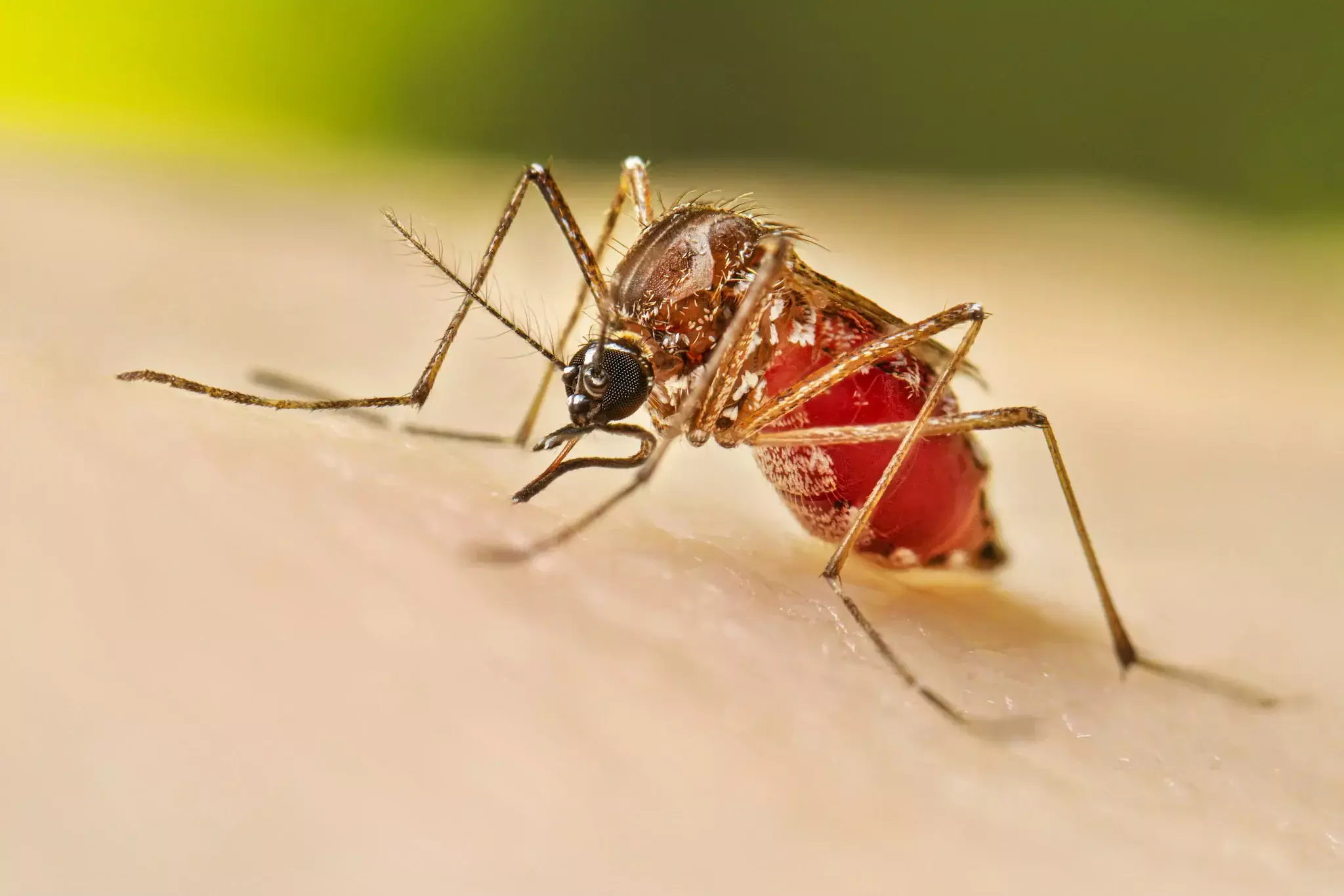Monsoon fallout: Telangana reports 882 dengue cases; Andhra too witnessing spike
Dengue, a mosquito-borne viral infection, is a recurring epidemic in India, between July and October every year
By Neelambaran A
Hyderabad: Come monsoon, Telangana and Andhra Pradesh witness a spike in dengue cases.
Telangana has reported 882 dengue cases till June 22. Andhra Pradesh too has recorded a spike in malaria and dengue.
Likewise, the number of dengue cases has recorded an upward trend in Karnataka, Maharashtra, and Telangana. Several cities in Karnataka including Bengaluru, Mysuru while Palghar, and Solapur districts in Maharashtra have recorded more cases this year than in 2023. It has set the alarm bells ringing for increased vigil and surveillance.
Dengue, a mosquito-borne viral infection, is a recurring epidemic in India, between July and October every year
With a cyclic trend of increase and decrease in case loads, the experts expect a rise in dengue cases in 2024, even though it is too premature to predict since the cases peak during September.
Public health experts have urged for the participation of the public in preventive measures, early identification of symptoms, and ensuring beds, oxygen, and blood in hospitals in case cases increase.
Infants, adolescents, and obese children prone to severity
Through the bites of female mosquitoes of Aedes aegypti species, humans can get infected by the dengue virus, chikungunya, and zika virus infections.
Dengue is the biggest recurring epidemic during the monsoon season between July and September. The eggs laid in any locality can breed quickly in fresh water and at high humidity which spurts an increase in mosquito bites resulting in the infection.
Dr Farhan A R Shaikh, head of the department of pediatric ICU at Rainbow Hospitals said, “People of all age groups are prone to dengue infection, but children below 1 year, children above the age of 12, and those with obesity may suffer from complications”.
The high fever exists for around 3-4 days and then subsequently settles down. Most of the children recover while few suffer from complications.
Timely hospitalisation required
The affected individual can develop rashes in the body, body pain, and low platelet count. The experts advise timely consultation and hospitalization, if necessary to recover from the infection.
“Around 95% of cases are not serious, but the other 5% may require hospitalization. The brain and liver may be affected and they could suffer from low blood pressure. Such cases are called complicated dengue”, Dr Farhan said.
Preventive measures essential
The eggs can hatch on the onset of monsoon and breed quickly in freshwater. Such mosquitoes fly within a 100 m radius, creating 2-3 cases from a single family. With around 5% of cases requiring treatment in the ICU and a mortality rate of up to 2%, the experts are batting for stringent preventive measures with the massive participation of the public.
Dr Madap Karuna, a paediatrician and a researcher in dengue said, “We have to ensure that the water logging is removed from all places and people wear full clothes to stay safe from mosquito bites. The government should create awareness among the public to prevent the public health threat”.
Steps to prevent dengue and severity
Dr Karuna also recommends the following 4 steps in preventing the spread of the epidemic
Surveillance:
For one dengue case identified, 50 houses in the locality should be screened for larvae breeding sites as per the WHO recommendation. The residents and welfare associations should be alerted through a GPS to prevent water logs.
Vector Control:
The entomology team should be pressed to service and fogging should be done on alternate days.
Clinical care:
The early symptoms should be taught to all rural doctors to ensure that clinical care is ensured for all the people.
Public education :
The public must be given awareness by advertisements in cinema halls, by sportspersons, and by cineartists for the next two months.
“If we start a national level campaign now, in the next 20 years we can prevent the dengue epidemic. The mandatory reporting of cases also can help prevent the epidemic”, Dr Karuna said.
Ensure beds, oxygen, and blood during the season
The experts have urged the respective governments to provide a tele consultation for dengue-infected patients with details of hospitals, clinics, and centers providing affordable treatment.
“Most modern technologies have reached remote villages in the country. This facility to provide advice to the patients over the phone should be ensured for the poor to receive free treatment in government facilities”, Dr Karuna added.
Meanwhile, Dr Farhan said, “The season usually peaks during September every year. The government must ensure beds, oxygen, and blood are available in sufficient quantities to overcome the possible spike”.